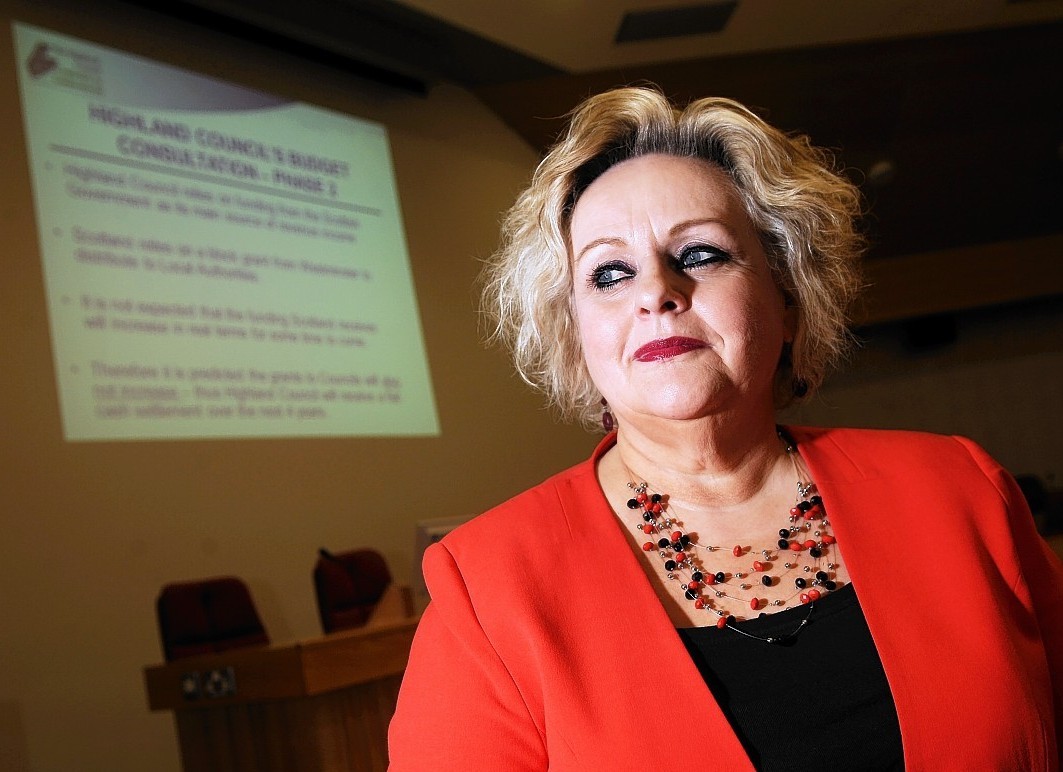The cost of burials, cremations and school meals could all soar as Highland Council battles to slash its spending by tens of millions of pounds.
The leaders of the local authority’s ruling administration have also proposed axing hundreds of jobs – including secondary teachers’ posts.
Libraries, swimming pools and community grants will be spared cuts if the plans are agreed – but only for this year.
Even if the coalition’s proposals are approved next week, the council still needs to find £13million of extra savings over the next four years.
The Educational Institute of Scotland said last night it was “worried” about the potential consequences of the planned cuts on children in the Highlands.
The council originally said it had to cut spending by £64million from 2015-19. However, after a detailed review, this figure has been revised to £55million.
The administration – made up of SNP, Liberal Democrat and Labour members – has outlined proposals to save £42million, leaving a gap of £13million to be found in later years.
Next week, the council will be asked to agree the first set of measures, which involve £17.9million of cuts in 2015-16.
Details of proposals for the following three years are also set out, amounting to the loss of 314.2 full-time equivalent (FTE) posts between 2015-19.
Budget leader Councillor Maxine Smith said that it was hoped the jobs would be shed by not filling vacancies and avoiding compulsory redundancies where possible.
She added: “We do not have a choice but to make cuts as we do not have the money to go round.”
She added that education was protected from the brunt of the spending squeeze, with just 2.2% being removed from the sector.
The council tax freeze would continue, despite calls from the Independent group to scrap it.
The rate for a band D house would be £1,163.
Last night, the deputy leader of the Independent opposition group Councillor Jaci Douglas said members were unhappy with some of the proposals and would table alternatives.
She said: “The cuts will have a negative impact on the community. We worry that it will be frontline workers that are affected and that we will lose jobs from towns and villages.”
The long list of proposals touches every department of the council.
Nearly 60 FTE posts will be lost from secondary schools across the region through various cost-cutting measures.
They include proposals to reduce teaching staff by 1% across the board, moving to standard 33-period weeks and using more technology to deliver certain courses.
Any secondary school which is overstaffed will also lose its extra teachers.
These four proposals would save £2.3million.
The cost of school meals would also rise by 10p every year.
Burial fees would rise from £505 to £775 in four years – an increase of more than 50%.
Similarly, the cost of cremations would jump from £580 to £850 – a 47% increase – and the cost of a single burial lair would go up by half, from £479 to £715 in 2018-19.
The administration estimates that the three proposals would raise an extra £1.31million.
A total of £150,000 would be saved by cutting verges only once a year, which could have implications for road safety.
Changes to road gritting are also proposed to save £600,000, including setting an “overnight traffic flow threshold” suggested to determine which roads get a pre-cautionary treatment.
Car parking is also under the microscope, with charging to be introduced on Sundays.
It is thought that this measure, which would affect Inverness’s Rose Street car park and others in the city centre and Fort William, could raise £95,000 for the council.
There is also a proposal to introduce weekend charging at the car park at the council’s own Glenurquhart Road headquarters to raise £20,000, although officials say that this could have an impact on free parking next door at Eden Court Theatre.
